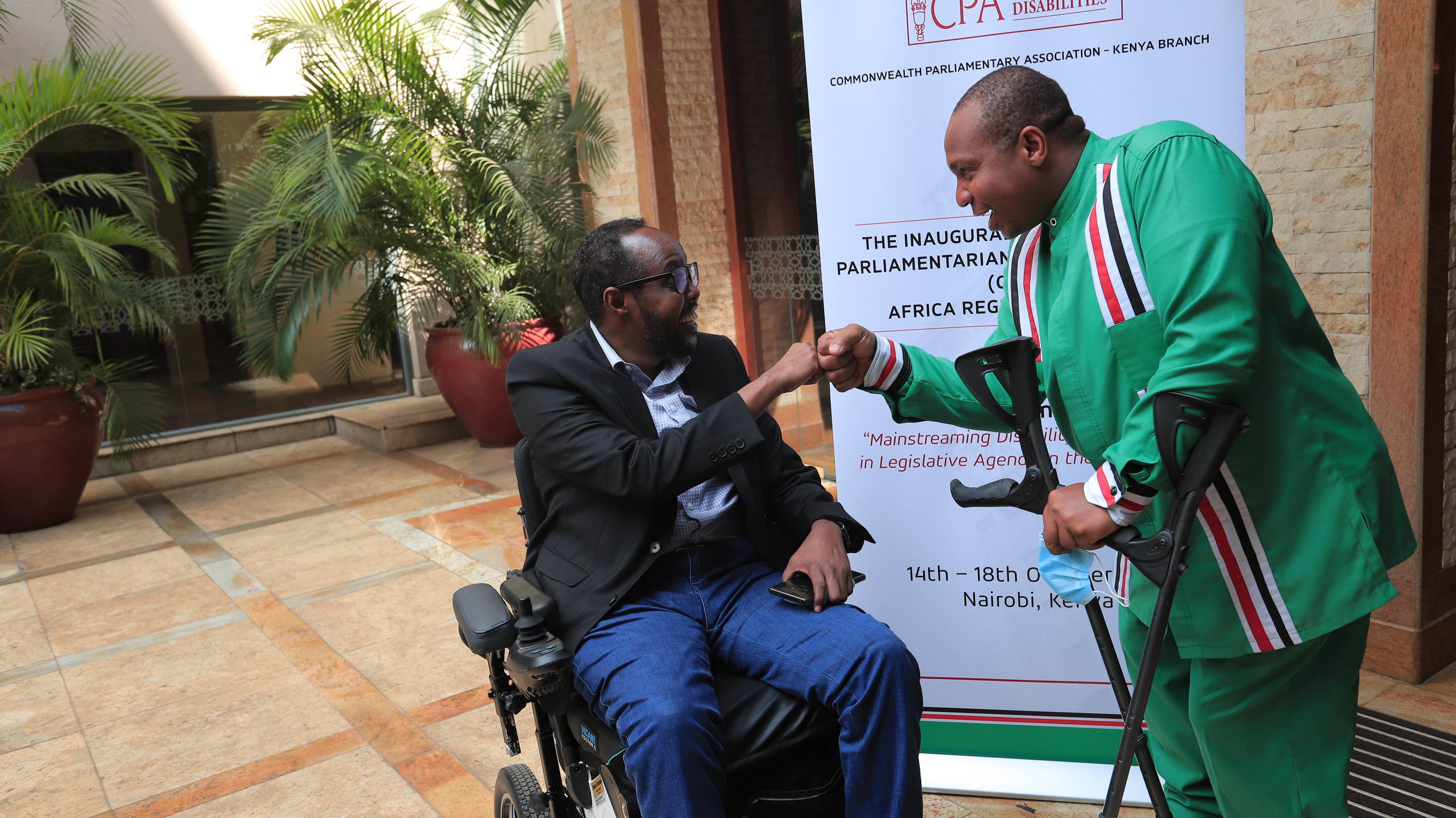
Absolute Power Corrupts Absolutely
Written by Matthew Salik, Head of Programmes, CPA Headquarters Secretariat.
Article posted on 07/12/2023
The full title of this article, the first in our series looking at the Power of Parliaments, comes from a noted 19th Century British historian, Lord Acton. The full quote is in fact
“Power tends to corrupt; absolute power corrupts absolutely”.
His observation seeks to highlight that the more power someone has, the more their sense of morality is weakened. It is frequently cited to warn people about the risks of governments having unchecked power and the abuses that can arise as a consequence.
This might be a bit of a downer in terms of an opening paragraph to my blog article, but hopefully it has got you hooked in reading more about the main thread of this piece, namely the Commonwealth Latimer House Principles on the Separation of Powers[1]. You may well have read the word ‘Principles’ and switched off, but to do so would be a big mistake and I will now tell you why…

Imagine, if you will, a hot sunny day in the 4th century BC in downtown Athens, and the bestselling author, philosopher, polymath and all-round genius Aristotle is giving a lecture tour on his latest salacious polemic, 'Politics'. In it, he discusses (at considerable length) the different forms of governance that could exist, everything from oligarchies to aristocracies. In a nutshell, he uses existing examples of the various city-states and how they are run to identify certain characteristics. Although his conclusions are somewhat anachronistic by today’s standards, especially around democracies, one key point he makes is that through the rule of law, via a constitution, there should be checks and balances so that political stability prevails against the excesses of tyrants, (absolutist) monarchies and demagogues. Put simply, sharing power and having accountability mechanisms can prevent 'absolute power corrupting absolutely'. Looking at a few countries around the world, some of this might be ringing alarm bells.
If you’re still with me, lets jump forward in time to the Middle Ages, around the 16th century and right the way through to the ‘enlightenment’ period. Over this time, many impressive political philosophers such as John Locke, Baron de la Montesquieu, David Hume and James Madison collectively conceived and shaped the current premise of the Separation of Powers. The ‘Separation of Powers Doctrine’, as it is more commonly known, contends that Aristotle’s views on checks and balances should be performed by key entities. Either given to one person (dictatorship), the few (oligarchy) or the many (democracy). However, more modern thinkers gave it a clearer form and shape. Specifically, that powers should be distributed between an Executive, a Legislature and a Judiciary. Each of these three institutions (or Branches) should have their unique roles and responsibilities, but should also work together, with each providing accountability mechanisms over the others.
Perhaps you are still confused, which is understandable. Therefore, now is a good time to introduce an illustration to hopefully clear things up.
As highlighted in the illustration below, the three branches of government or ‘three cogs’ demonstrate how the 'Separation of Powers Doctrine' should work in practice. Each cog should turn together and in so doing, perform their functions as intended. They are in a sense separate, but together.

However, these cogs can sometimes experience ‘friction’ which disrupts the mechanics of good democratic governance. The Executive can obstruct the movement of the Legislature, as can the Judiciary obstruct the Executive, and so on. For example, the Executive should not make laws or administer justice and Parliament should not pass laws that are arbitrary and/or inconsistent.
How does all this relate to the real world? Well let’s take the interaction between Parliament and the Judiciary. Parliamentarians often have extremely generous privileges in terms of freedom of speech within Parliaments. They can, in principle, say whatever they like. But let us say that a judge has made a ruling to provide confidentiality concerning a witness in a case.
Should a Parliamentarian break that ruling by naming that person in the middle of a debate? If they did, this would be an example of Parliament interfering in the work of the Judiciary. There are often rules in Parliament (like the sub judice rule) which prevents Parliamentarians from doing such a thing. Another example could of course be when Parliaments block the appointment of judges and thus create a significant backlog in cases.
Now let’s look at a more challenging and pernicious issue between the Executive and Parliament. Let us say that the Parliament needs a slight increase in its running costs, due to a need for urgent building repairs. However, in this particular jurisdiction, the Ministry of Finance determines the budget allocated to the parliament. The Ministry refuses to permit a financial increase and the roof of the parliamentary chamber collapses, and the Parliament cannot sit, pass laws or scrutinise the government. In this instance, the Executive (in the form of the Ministry of Finance) is exerting excessive control over the functioning of Parliament and in doing so is undermining its purpose and performance.
Similar examples could be offered in terms of the Executive’s relationship with the Judiciary. Collectively, these frictions can be either minor in impact or extremely dangerous and destabilising. Consequently, there needs to be a considerable degree of effort employed to perpetually maintain an equilibrium and balance across the 'Separation of Powers Doctrine'.
So having read all this you are now asking yourself the obvious question – "What are the Commonwealth Latimer House Principles on the Separation of Powers?”. Well, I shall explain. In June 1998 a group of distinguished Parliamentarians, judges, lawyers and legal academics joined together at Latimer House in Buckinghamshire, United Kingdom, at a Colloquium[2] on Parliamentary Sovereignty and Judicial Independence within the Commonwealth. The Colloquium was sponsored by the Commonwealth Lawyers’ Association (CLA), the Commonwealth Legal Education Association (CLEA), the Commonwealth Magistrates’ and Judges’ Association (CMJA) and the Commonwealth Parliamentary Association (CPA - that’s us), with the support of the Commonwealth Foundation, the Commonwealth Secretariat and the United Kingdom Foreign and Commonwealth Office[3].
The Colloquium came about in part because of the increasing trend across the Commonwealth of the branches of government attacking one another, and the checks and balances designed to enable the system to work effectively being eroded and undermined. The product of the Colloquium, 'The Latimer House Guidelines on Parliamentary Supremacy and Judicial Independence', evolved into the Commonwealth (Latimer House) Principles on the Three Branches of Government. The Principles highlight the importance of the Separation of Powers between the Legislature, the Executive and the Judiciary to ensure effective governance and democracy. The Commonwealth Latimer House Principles provide guidance on the role of the Separation of Powers in the Commonwealth, its effectiveness in providing democratic governance and the role of civil society. The Principles were first approved by Commonwealth Law Ministers in 2002 and endorsed by the Commonwealth Heads of Government at their meeting in Abuja, Nigeria in 2003.
Section III of the Principles state:
'Independence of Parliamentarians: (a) Parliamentarians must be able to carry out their legislative and constitutional functions in accordance with the Constitution, free from unlawful interference'.[4]
In March 2013, the first Commonwealth Charter adopted by Commonwealth Heads of Government validated the Commonwealth Latimer House Principles on maintaining the integrity of the three branches of government (Article VI).
“We recognise the importance of maintaining the integrity of the roles of the Legislature, Executive and Judiciary. These are the guarantors in their respective spheres of the rule of law, the promotion and protection of fundamental human rights and adherence to good governance.[5]”
Because the Principles were initially endorsed in 2003, the CPA are in a celebratory mood and wish to commemorate the 20th anniversary of their establishment. We have been spending a lot of 2023 by promoting the Principles (see The Parliamentarian 2023 Issue Four). Essentially because it is important to continually highlight the Principles and to advocate for them as broadly as possible. This is because, for the Principles to work, people have to defend them and keep an eye on their application within their jurisdictions. Otherwise, 'absolute power will inevitably corrupt absolutely'.
I will, if I may, make an additional but no less important observation when it comes to the Commonwealth and the Separation of Powers Doctrine. There are two converging views in how the Doctrine is best applied to Parliaments and their interaction and overlap with the other branches of government.
On the one hand there is the ‘Westminster System’ and on the other hand the ‘Presidential System’ of government (there is also a hybrid system, but let’s leave that one for now). Both exist around the Commonwealth, with one emanating from the UK and one a more ‘Franco-Americanised’ approach.
The Westminster System will have a split Executive with a Monarch, Governor or figure-head presidency and a Prime Minister/Chief Minister as the political Executive, and a Parliament where Ministers and potentially the Judiciary may also sit.
A Presidential System has an Executive Presidency, a set of appointed (non-parliamentary) Ministers and a separate Judiciary ensconced in a codified constitution.
The Westminster System results in a greater degree of overlap between the three branches of government, but not necessarily in their functions. There are many pros and cons to each system, much of which has been covered extensively over the years.
However, regardless of the nuanced approach taken, it is important that at no point should one branch dominate the other two and vice versa.
Equally important is that there are some practical actions that Parliamentarians should be considering and implementing to protect, preserve and reinforce the Latimer House Principles. Below are 10 top tips which should always be kept in mind:
Top Ten Tips for enforcing the Commonwealth Latimer House Principles and the Separation of Powers:
- Ensure that Parliament has sufficient institutional independence.
- Ensure that Parliament has the resources it needs to function effectively.
- Have active Parliamentary Committees holding the Executive to account and providing adequate oversight.
- Educate the public on the difference between the three branches of government, and what they should be doing.
- Ensure Parliament does not interfere in the work of the Judiciary (sub judice rule).
- Ensure a limitation on the dominance of the Executive within Parliament.
- Respect the sovereignty of Parliament, particularly those who are members of the governing party.
- Keep a check on the Executive’s interference in the Judiciary.
- Keep a constant watch on the Separation of Powers in theory and practice.
- Remember it’s not just about laws and rules, but also people[6].
I hope after all that, you have gotten the gist of the Commonwealth Latimer House Principles and are ready to defend them at every turn. Right?
References:
[1] Commonwealth Latimer House Principles
[2] A colloquium is a fancy word for a conference or seminar.
[3] This is now known as the Foreign, Commonwealth and Development Office.
[4] Commonwealth Latimer House Principles
[5] Charter of the Commonwealth, 2013
[6] Extract from a presentation given by the CPA Secretariat at the 2nd Commons and Overseas Territories Speakers’ Conference, Anguilla, 2023.
Return to the CPA blog series: 'Commonwealth Latimer House Principles 20 Years On: 'Power of Parliaments'
Follow the CPA on social media to continue the discussion.




